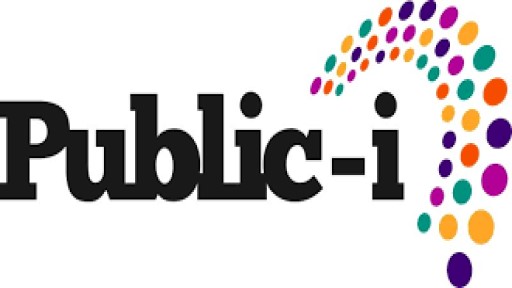Agenda and draft minutes
Venue: Virtual Meeting
Contact: Dawn Mitchell, Senior Democratic Services Officer
| No. | Item |
|---|---|
|
Minutes of the previous meeting held on 4 February 2020
To approve the accuracy of the previous minutes held on 4th February, 2020. Minutes: Resolved:-
That the minutes of the previous meeting of the Audit Committee held on 4 February 2020 be approved as a true and correct record of proceedings. |
|
|
Declarations of Interest
To receive declarations of interest from Members in respect of items listed on the agenda. Minutes: There were no Declarations of Interest made at the meeting. |
|
|
Questions from Members of the Public or the Press
To receive questions relating to items of business on the agenda from members of the public or press who are present at the meeting. Minutes: There were no questions from members of the public or the press. |
|
|
Update on External Audit Update
To receive an update on:-
· PSAA - Scale Fee Letter. · Grant Thornton - Audit Scope Letter. · Grant Thornton - Audit Plan Addendum. Additional documents:
Minutes: Consideration was given to the update on External Audit by the representatives from Grant Thornton.
The update drew specific attention to the PSAA - Scale Fee Letter, Grant Thornton’s Audit Scope Letter and Grant Thornton’s Audit Plan Addendum and the key issues around fee assumptions and expectations, set out in the Statement of Responsibilities, summarised where the different responsibilities of auditors and of the audited body began and ended and what was to be expected of both in certain areas.
It was pointed out that the final fee for the audit would reflect the risk-based approach to audit planning as set out in the Code. Under the Code, auditors would tailor their work to reflect local circumstances and their assessment of audit risk. This would be achieved by assessing the significant financial and operational risks facing an audited body, and the arrangements it had put in place to manage those risks, as well as considering any changes affecting audit responsibilities or financial reporting standards. Grant Thornton representatives also highlighted that in terms of their audit scope they were also effectively providing assurances for those charged with governance in order deliver a high quality audit to all users, whilst also seeking to maintain the fee within the envelope previously discussed.
The Council had been contacted to outline how the increased regulatory focus facing all audit suppliers was impacting on the planned audit programme and the expectations for the audit coverage for 2019-20, as well as for the audit fee.
It was further explained that managerial oversight would need to be increased to achieve this audit standard with even greater challenge of management being exercised in areas that were complex, significant or highly judgmental. This additional work would need to be undertaken as detailed in the submitted letter attached to the agenda pack.
In terms of the Audit Plan Update it was highlighted that the preparation of financial statements in accordance with the relevant accounting standards and the Code of Audit Practice would be extended up to 31st August, 2020 and the date for audited financial statements to 30th November, 2020.
Grant Thornton, External Auditors, would continue to liaise with the Council’s management to agree appropriate timescales and to be responsible for forming and expressing an opinion on the Authority’s financial statements and conclusions on the VFM arrangements.
In order to fulfil responsibilities under International Auditing Standards (ISA’s (UK)) the planning risk assessments had been revisited and consideration may need to be given to implementing changes to the procedures that were planned and reported in the Audit Plan to reflect current restrictions to working practices, such as the application of technology to allow remote working.
Additionally, it was confirmed since the Audit Plan was issued that the implementation of IFRS 16 had been delayed for the public sector until 2021-22.
In response to queries about remote working, the Council confirmed it was managing risks using technological innovations and would ensure the audit was undertaken remotely under the current circumstances. All the relevant ... view the full minutes text for item 73. |
|
|
Dedicated School Grant - Central Reserve
To note the actions being taken to manage the Dedicated School Grant deficit in Rotherham, the additional funding allocated in the government spending review and the outstanding Department for Education (DfE) consultation on Special Education Needs & Disabilities (SEND) and Alternative Provision (AP) Funding and the DfE’s consultation response to ‘Clarifying the Specific Grant and Ring-fenced Status of the Dedicated Schools Grant (DSG)’ Additional documents: Minutes: Consideration was given to the report which detailed the current and projected overspend on the Dedicated Schools Grant and the recovery plans in place to operate within its annual allocation and reduce the deficit over future years.
The report further outlined the national picture on the High Needs Block as part of the overall Dedicated Schools Grant and the additional funding the Government was investing in education in the next three years as part of its spending review.
In addition, attention was also drawn to the clarification on the accounting treatment of the Dedicated Schools Grant reserve and use of funds to mitigate the deficit following the Government’s consultation response in January, 2020.
The Committee were advised the Council had produced a deficit recovery plan to identify cost savings and reduce the cost pressures on the High Needs Block within the Dedicated Schools Grant. The four main cost pressures (also national pressures) were:-
· High cost external residential placements and independent sector placements. · General growth in the number of Education Health Care (EHC) with a particular pressure identified for supporting young people post 16. · Growth in alternative provision placements linked to Pupil Referral Units as an outcome of permanent exclusions. · The growth in the number of pupils who require specialist provision when their assessed needs cannot be met by mainstream schools and academies.
In addition, the LAC Sufficiency Strategy, and specifically plans to provide care for Looked After Children within the borough, would also have a positive impact on the High Needs Budget. The Council would be in a position to directly oversee each child’s Education, Health and Care Plan, and identify local provision that was in a position to meet their needs.
The recent Government spending review announced additional funding for schools and high needs, compared to 2019-20, which would rise by £2.6 billion for 2020-21, £4.8 billion for 2021-22 and £7.1 billion for 2022-23.
In 2020/21 the £2.6 billion was split £1.9 billion to the Schools Block and £0.7 billion to the High Needs Block; and for Rotherham this was an additional £6.2 million for schools and £4.8 million in the High Needs Block.
The report further outlined the consultations on the conditions of grant and regulations and how they applied to the Dedicated Schools Grant. The DfE’s consultation response to ‘Clarifying the Specific Grant and Ring-fenced Status of the Dedicated Schools Grant (DSG)’ was appended to the report.
It was also pointed out that the Government consultation response made it entirely clear on a statutory basis that a DSG deficit must be carried forward to be dealt with from future DSG income, unless the Secretary of State authorised the Council not to do this.
To assist in mitigating the DSG pressures in the High Needs Block local authorities it was noted that Councils could transfer monies (0.5%) from the Schools Block (£190m in 2019/20) to the High Needs Block if they had consulted and gained agreement from Schools and Schools Forum. If a Local Authority wished to transfer ... view the full minutes text for item 74. |
|
|
Closure of the Accounts 2019/20 - Update due to Covid-19
To note the revised timetable for the production of the Council’s financial statements. Minutes: Consideration was given to the report which set out how the principal objective of the Council’s annual financial statements were being accountable to a range of local and national stakeholders over the stewardship of its resources.
It was stressed how important the Council’s financial statements were prepared in accordance with recognised accounting standards so that they could be relied upon by users of the accounts.
The Committee’s attention was brought, therefore, to the main changes required to the Council’s timetable for the production of the financial statements, as a result of Coivd-19; with the most notable change being the Audit Committee needing to formally approve the audited Statement of Accounts at its November meeting.
The Committee were further advised the timetable for the production of 2019/20 accounts, which had been extended to allow for the publication date for final audited, accounts would move from 31st July to 30th November, 2020 for all local authority bodies.
In light of this draft accounts must be approved by 31st August, 2020 at the latest or may be approved earlier, wherever possible and to give local authorities more flexibility, the requirement for the public inspection period to include the first ten working days of June has been removed. Instead local authorities must commence the public inspection period on or before the first working day of September 2020. Notice on the website when the public inspection would commence was also recommended.
The Committee recognised the work being undertaken and wished to place on record their thanks and appreciation to all staff involved in the Council’s finances.
Resolved:-
That the revised timetable for the production of the Council’s financial statements be noted. |
|
|
Internal Audit Self-Assessment against the Public Sector Internal Audit Standards
To note the result of the self-assessment against the PSIAS and to confirm that an external peer review should be completed in late 2020. Minutes: Consideration was given to the report which detailed how all Internal Audit departments in Local Government must comply with the Public Sector Internal Audit Standards (PSIAS). The standards included the need for an annual self-assessment to confirm compliance, with an external assessment at least every five years.
An external assessment was completed by PwC in 2015-16, who found that the Department did not conform to the standards, resulting in an Action Plan to improve. An internal self-assessment was completed in January 2017 which showed that substantial progress had been made demonstrating partial conformance with the standards.
Further self-assessments in January 2018 and January 2019 showed that sufficient progress had been made to conclude general conformance with the standards.
This report, therefore, set out the details and the results of the internal self-assessment for January, 2020 and reaffirmed the conclusion of general conformance with the standards.
An external peer review validation of the self-assessment was agreed and planned by the Audit Committee to take place April and May, 2020, but this had since been postponed for later in 2020.
Resolved:-
1. That the result of the self-assessment against the PSIAS be noted.
2. That an external peer review be completed in late 2020. |
|
|
Internal Audit Quality Assurance and Improvement Programme (QAIP)
To note the production and ongoing implementation of the QAIP based on the internal self-assessment reported to the Audit Committee. Minutes: Consideration was given to the report which detailed how Internal Audit was a major source of assurance to the Council on the framework of control, risk management and governance. It was, therefore, important that it operated in conformance with Public Sector Internal Audit Standards.
An internal self-assessment was completed in January, 2019 which showed general conformance with those standards. A Quality Assurance and Improvement Programme (QAIP) was produced to address the areas where conformance was not achieved, or further improvement could be made.
The Improvement Programme had since been implemented. The latest annual self-assessment was now complete, still showing general conformance with the standards. However, there were still actions that could be taken to maintain and improve performance. The report, therefore, set out the status of actions in last year’s QAIP and the actions to be taken over the coming year.
The Committee sought assurance that this would be complete and externally verified by the end of the calendar year.
Resolved:-
That the production and ongoing implementation of the QAIP based on the internal self-assessment be noted. |
|
|
Internal Audit Annual Report 2019-20
To note Internal Audit work undertaken during the financial year 2019/20 and the key issues that have arisen from it, the overall opinion of the Head of Internal Audit and the information contained regarding the performance of Internal Audit during 2019/20. Minutes: Consideration was given to the report which provided information on the role of Internal Audit; the work completed during 2019-20 and highlighted the key issues that have arisen from it.
An outline was provided on the overall opinion of the Head of Internal Audit on the adequacy of the Council’s control environment, risk management and governance and on information regarding the performance of the Internal Audit function during 2019-20.
It was noted that based upon internal audit work undertaken, and taking into account other internal and external assurance processes, it had been possible to complete an assessment of the Council’s overall control environment.
The Head of Internal Audit as of the opinion that the Council had overall an adequate and effective framework of governance, risk management and control during 2019-20. However, at the end of the year the effect of the response to Covid-19 may have impacted on that adequacy and effectiveness.
The Committee advised audits were carried out in all areas of the Council during the year. The overall level of control found in audits was good. No area stood out as being worse than the others. A full summary of the results were appended to the report, together with definitions of the assurance levels and recommendation categories.
The Committee welcomed the report and the progress made to date.
Resolved:-
1. That the Internal Audit work undertaken during the financial year 2019/20 and the key issues be noted.
2. That the overall opinion of the Head of Internal Audit be noted.
3. That the information contained regarding the performance of Internal Audit during 2019/20 he noted. |
|
|
Audit Committee Forward Work Plan
To review the Forward Work Plan and suggest any amendments to it. Minutes: Consideration was given to the which set out the work plan covering the next year and showed how the agenda items related to the objectives of the Audit Committee.
The work plan was an evolving document and could be reviewed and amended as necessary.
Resolved:-
That the Forward Work Plan be received for review and any amendments suggested. |
|
|
Exclusion of the Press and Public
The following items are likely to be considered in the absence of the press and public as being exempt under Paragraph 3 of Part 1 of Schedule 12A to the Local Government Act 1972 (business affairs). Minutes: Resolved:-
That, under Section 100(A) of the Local Government Act 1972, the public be excluded from the meeting for the following items of business on the grounds that they involve the likely disclosure of exempt information as defined in Paragraph 3 of Part 1 of Schedule 12(1) of such Act indicated, as now amended by the Local Government (Access to Information) (Variation) Order 2006 (information relating to business and financial affairs). |
|
|
Internal Audit Progress Report for the period 1st January to 30th April, 2020
To note the Internal Audit work undertaken since the last Audit Committee, 1st January to 30th April, 2020, the key issues that have arisen from it, the information contained regarding the performance of Internal Audit and the actions being taken by management. Minutes: Consideration was given to a report presented by the Head of Internal Audit, which provided a summary of Internal Audit work completed during 1st January to 30th April 2020, and the key issues that had arisen therefrom.
An overview was provided on the status of actions arising from audits and regarding the performance of the Internal Audit function during this period.
The current position with regards to the plan was set out in detail as part of the appendices and the current position highlighted following review. Eleven reviews were deleted from the current year’s plan, with additional days being allocated to two reviews.
As a result of the current pandemic most of the Audit Team had been supporting the Finance Department in the processing of applications which meant of the reviews were still in progress and some were deferred. Even with some of the cancellations, sufficient work was completed during the year to enable the annual audit opinion to be formed.
There were currently twelve reports completed in draft, eight of which had been reviewed and issued to management, with six responses overdue. By the time of the meeting, two of these had been received, with dates agreed for the other four.
Performance against targets had not achieved for the time to issue a draft report, but this related to just one audit. Target Performance had, therefore, not been achieved for the indicator on productive time. Some of this was due to sickness with a member being absent for the majority of this period.
Further information was provided on the management response to audit reports and the level of commitment to the implementation of recommendations. Summary reports of outstanding actions were produced monthly and distributed to Strategic Directors and discussed at the Strategic Leadership Team meetings, where the current situation was highlighted.
Whilst it was noted that progress was steady the result of the pandemic had meant management had other priorities to concentrate on. The situation would continue to be closely monitored.
The Committee sought assurances that staff would soon return from redeployment in order for internal audit work to resume and were advised that it was hoped that staff would commence returning from mid-end June, 2020.
The Committee also asked that the staffing and performance position be monitored and some benchmarking take place with other authorities as to the level of internal audit activity and how this had been managed during the pandemic.
Grant Thornton representatives confirmed they were drawing on experience with other local government and NHS clients around internal and external auditing during Covid-19. Discussions would take place between respective colleagues and the situation closely supported and monitored.
Resolved:-
1. That the Internal Audit work undertaken during the period 1st January to 30th April 2020, and the key issues arising be noted.
2. That the performance of Internal Audit and the actions being taken by management in respect of their performance be noted.
|
|
|
Children and Young People's Services (CYPS) Directorate Risk Register
To note the progress and current position in relation to risk management activity in CYPS. Minutes: Consideration was given to a report, presented by Sally Hodges, Interim Strategic Director of Children and Young People’s Services, which provided details of the Risk Register and risk management activity within the Children and Young People Services’ Directorate.
Particular reference was made to the categorisation of service areas in the current plan and how each service area had established risk registers capturing their service level risks identified and monitored by the respective Assistant Director and their Heads of Service.
The risk registers were reviewed and updated with a clear mechanism for any Assistant Director service level risk to be escalated higher.
A regular scheduled programme of reviewing and updating service area and directorate level risk registers had been implemented with risks formally discussed and reviewed by Directorate Leadership Team (DLT) on a quarterly basis and by individual members of the Directorate Leadership Team with their Senior Management Teams on a monthly basis.
The CYPS Directorate level risk register had now been refined to four risks registered and outlined, which were appended to the report, and reflected the current risks and direction of travel the Directorate was moving in.
It was also intended that new Service Plans for 2020/21 would identify priorities moving forward, which in turn reflected within the CYPS risk register and respective service area risk registers.
The Committee sought reassurance that the risks were embedded in the service given the current situation and were advised about the processes being used to ensure vulnerable children were identified and closely monitored. This was more of a concern with the current pandemic and the young people being out of education.
Further clarification was sought on the four risk themes and whether there were sub-sets that sat beneath in order to monitor all identified risk and to ensure this was all picked up as part of the risk profile. Assurances and explanations were further provided on how all risks were captured.
The Committee suggested this be discussed further with the Corporate Improvement and Risk Manager for his oversight and for him to be involved in the risk profiles and format of the Directorate Risk Register if this was required for consistency.
Resolved:-
1. That the progress and current position in relation to risk management activity in the Children and Young People’s Services Directorate, as detailed in the report now submitted, be noted.
2. That the Corporate Improvement and Risk Manager be asked to review the consistency of the risk profiles and format of the Directorate Risk Register. |
|
|
Items for Referral for Scrutiny
To consider the referral of matters for consideration by the Overview and Scrutiny Management Board. Minutes: There were no items for consideration by the Committee from Scrutiny. |
|
|
Urgent Business
To consider any item which the Chair is of the opinion should be considered as a matter of urgency. Minutes: There were no items of urgent business for consideration. |
|
|
Date and time of next meeting
The next meeting of the Audit Committee will be held on Tuesday, 23rd June, 2020 commencing at 2.00 p.m. Minutes: Resolved:-
That the next meeting of the Audit Committee be held virtually on Tuesday 23 June 2020 at 2.00 p.m. |

 PDF 72 KB
PDF 72 KB


